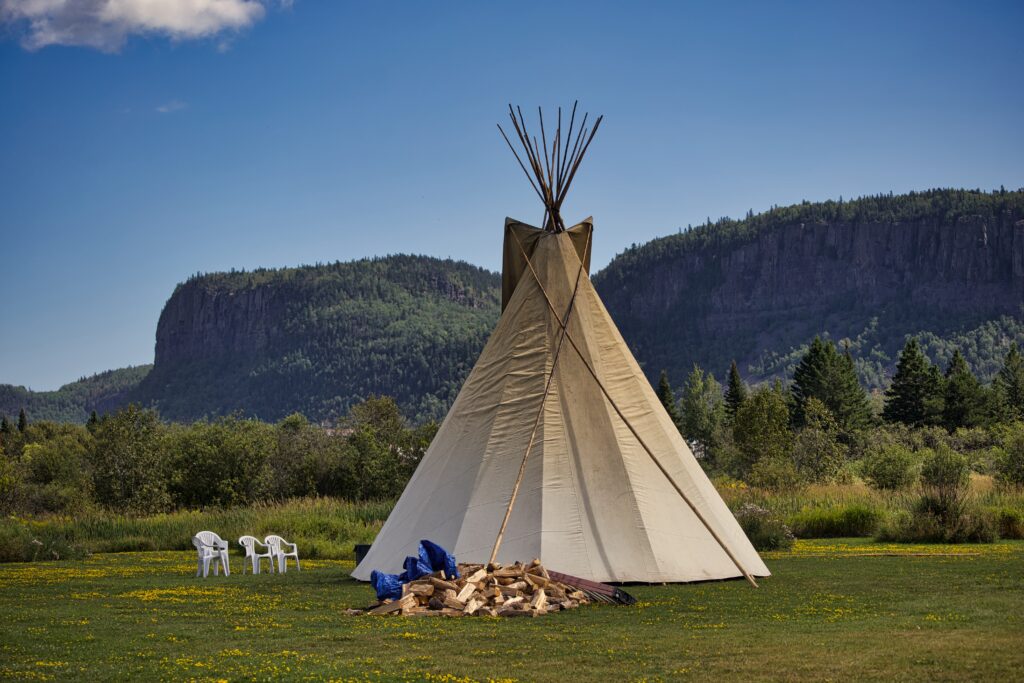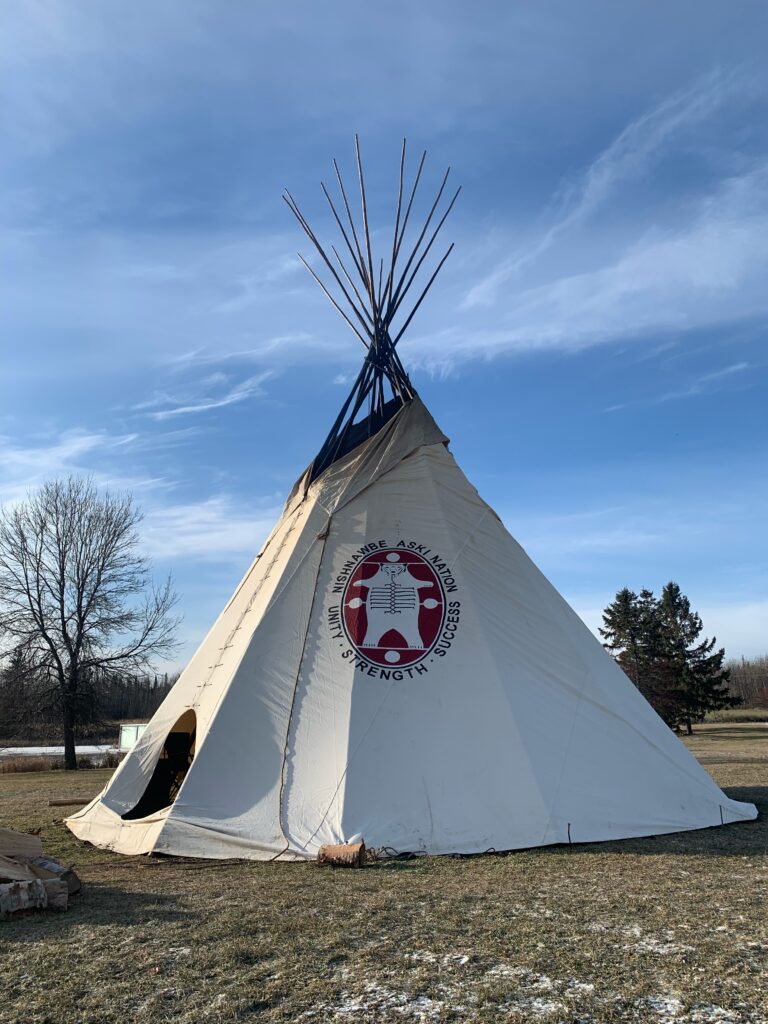The “Knowledge is Sacred, Truth is Healing” gathering took place from August 18 to 22, 2024, on the traditional lands of the Fort William First Nation in Thunder Bay, Ontario. This important event brought together Indian Residential School Survivors, intergenerational Survivors, contract partners, and dedicated staff. Our purpose was clear: to ignite crucial conversations in advocating for the full truth to be uncovered, and comprehensive funding that respects the scale and sacred work of Bringing the Children Home.
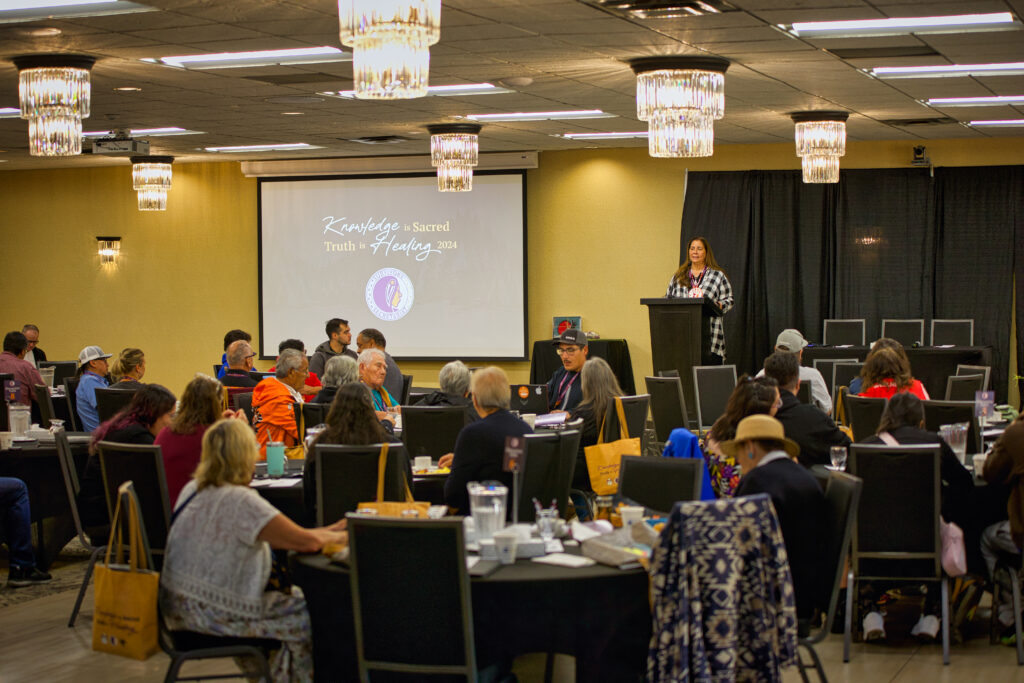
This gathering was originally about Indigenous Data Sovereignty, until Canada announced the federal funding cuts in late July 2024 for investigations into missing children and unmarked burials associated with Indian Residential Schools. The Survivors’ Secretariat decided to pivot its gathering to discuss how these funding cuts will impact the work of Survivor organizations across Canada. While the original funding agreement allocated was $216.5 million over three years, the new agreement slashes this amount to just $91 million over two years — an overall reduction of $125.5 million or around $26 million each year.
The decision to cut funding is not only devastating but deeply disrespectful to Survivors, their families, and their communities. It has jeopardized our collective efforts to locate and commemorate the missing children and hinders the ability of Survivor organizations to help our communities heal from the intergenerational impacts of the Indian Residential School system.
In response to these detrimental funding cuts which affect Survivor organizations nationwide, the Survivors’ Secretariat is preparing a report outlining participant’s discussions about the funding cuts. This report will highlight the challenges posed by the cuts and advocate for the resources necessary to continue this vital work.
As Chief Anna Betty of Nishnawbe Aski Nation powerfully stated, “We need to stand together. Be firm. Stand behind Survivors and communities to access the funds that we need. There is still work to do.”
Participants heard from experts about the costs and resources required to continue these investigations. Each presentation was then followed by a series of tabletop discussions about the impact of the funding cuts. Below is a summary of each of those presentations.
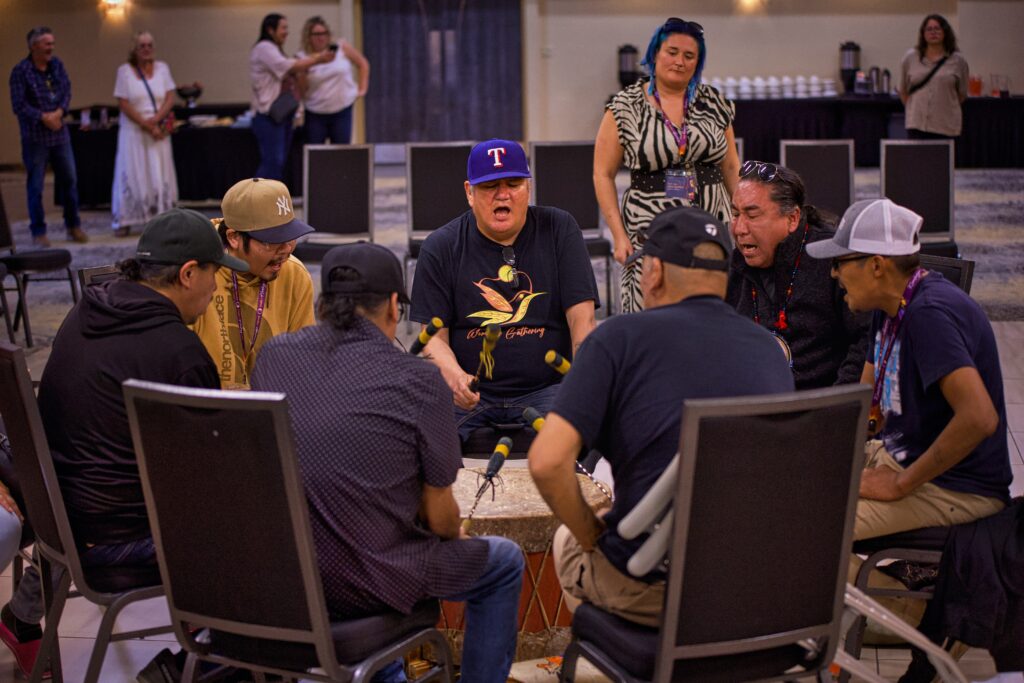
Day 1 - Ground Search
The first day of the Knowledge is Sacred, Truth is Healing gathering focused on ground search initiatives. Dr. Scott Hamilton from Lakehead University highlighted the severe impact of recent federal funding cuts on these crucial searches, emphasizing that “the searches need more time and money.”
Many Survivor organizations across the nation have invested heavily in ground search technologies, such as Ground Penetrating Radar (GPR), drones, and LiDAR machines. Hamilton stated that these tools are costly to purchase, maintain, and operate, and they require comprehensive staff training. There are also additional costs that must be accounted for, including equipment maintenance and repairs and expensive software needed to interpret and store the large volumes of data collected.
The ground search area of the Mohawk Institute spans approximately 600 acres. After three years of work, the Secretariat has managed to search only 2.1% of this area. Dr. Hamilton stated, “We are expected to conduct ground searches in these large areas and now there is less money available. We’ve got a big problem on our hands.”
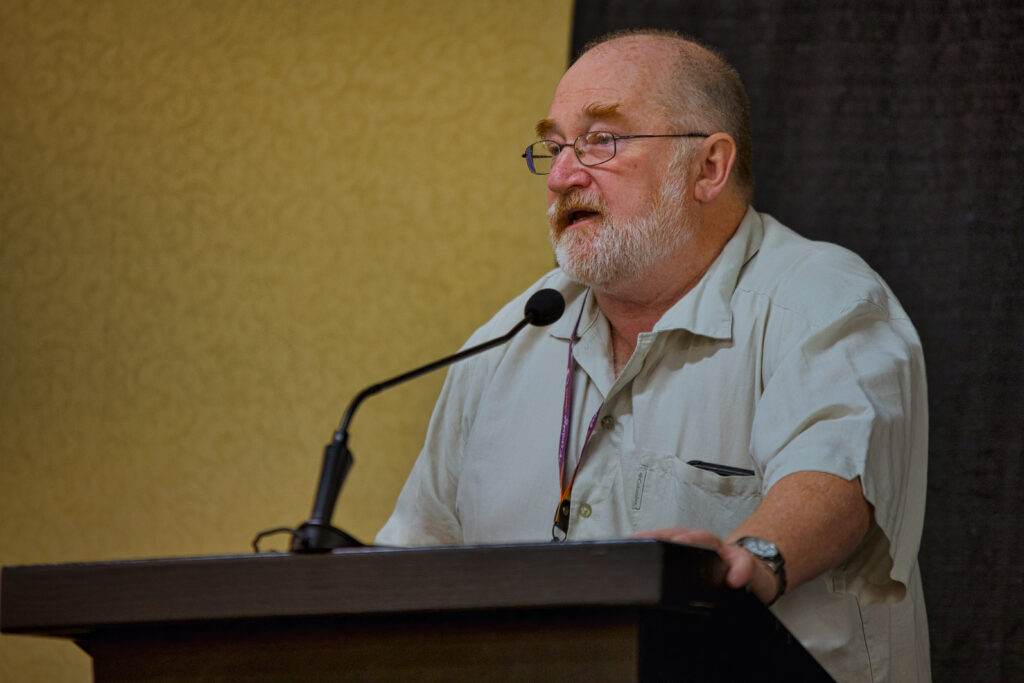
Liam Wadsworth, a PhD candidate at the Department of Anthropology/Institute of Prairie and Indigenous Archaeology at the University of Alberta and Technical Lead for IRS ground searches in Alberta and Saskatchewan, joined us via Zoom. He provided an in-depth look at the costs associated with ground search work related to geophysical technology.
In his presentation he provided an example, stating a single drone costs up to $17,000, with sensors priced around $20,000. He also mentioned the additional costs of software, staff training, and certifications. A single GPR system costs about $40,000 and is typically used for targeting smaller areas clear of debris or obstructions. He also showed a variety of other technologies that would make searching larger areas more time efficient, such as an ATV mounted system, however this style of equipment comes with a much greater price tag.
Liam also highlighted that there are currently no training institutions or programs in Canada for these techniques. Indigenous communities most contract partners for training and guidance in ground search efforts.
He concluded his presentation by stressing that the cost of ground search equipment alone will consume most of the budget. Additional hidden costs, such as hardware depreciation, damage, training software, licensing, and staff to process data, must be considered when planning.
Indigenous nations will need more resources beyond the initial purchases, and they may face significant challenges in completing searches with inadequate funding. Liam emphasized the need for a clear financial commitment and timelines from the government, as well as the establishment of training programs at academic institutions to provide accredited training for Indigenous nations to conduct this vital work.
Day 2 - Records and Documentation
On the second day of the Knowledge is Sacred, Truth is Healing gathering, the focus was on records and documentation. Mika Patterson, Data Librarian from the Survivors’ Secretariat, provided an overview of the Secretariat’s work over the past three years and discussed potential changes due to upcoming federal funding cuts.
Among the changes anticipated are reductions in outreach initiatives, a shift to phased project approaches, alterations in programming for Survivors, a re-shaping of work related to records and documents, and staffing adjustments. She also stated that the Survivors’ Secretariat’s projects for commemoration and memorialization projects remain unsecure.
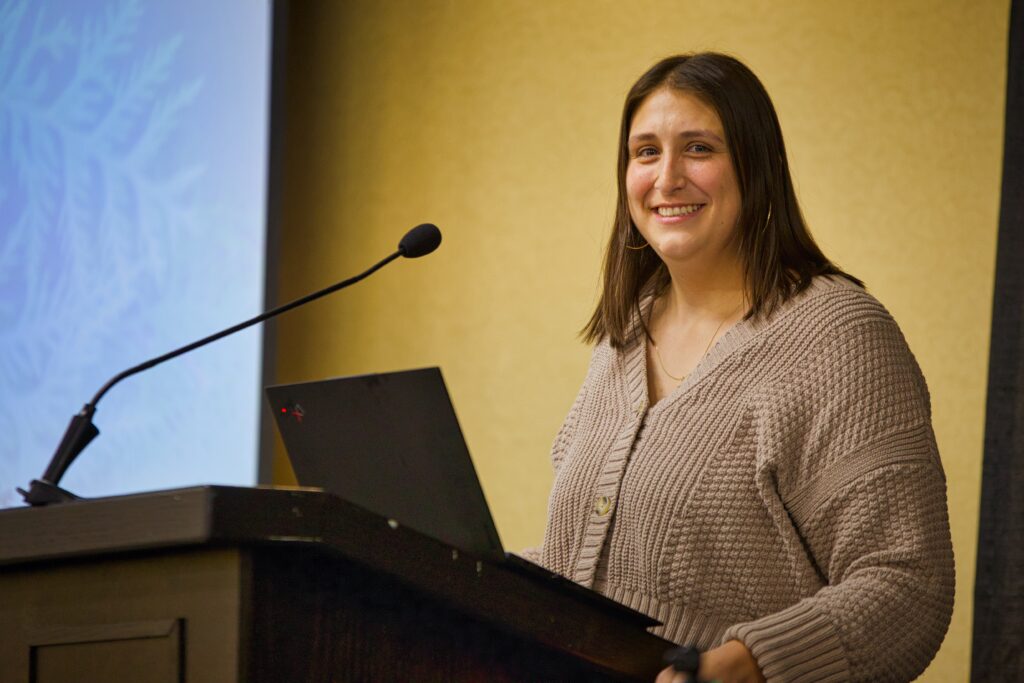
Ryan Shackleton, Know History, underscored the inadequacy of three years for thorough research into Indian Residential Schools. His presentation highlighted the necessity of community-led narratives over government perspectives and the crucial role records play in revealing the truth.
Shackleton illustrated the challenge with an example: a 92-page report on renovations at the Mohawk Institute, where his team spent seven hours reviewing, inputting and tagging 60 relevant items from this one document into an air table. Given the sheer volume of documents each Indian Residential Schools has, this task is monumental and will require significant resources.
Current research has confirmed 5,630 students attended the Mohawk Institute, with 100 documented deaths. These students have been confirmed through letters, correspondence, and journals entries made by school officials, members of the government or entities representing the New England Company (Anglican Church). However, many records related to Indian Residential Schools remain incomplete and are dispersed across North America and Europe.
Shackleton urged the government to speed up handing over all records so Survivors can receive answers within their lifetimes. He stressed that the work extends beyond records to acknowledging the lived experiences of Survivors and identifying missing children, which is vital for community healing through truth. The sense of urgency was clear to everyone in attendance, and we must collectively urge and demand that Canada speed up its actions to ensure timely answers for all impacted.
Day 3 - Commemoration
The third and final day of the Knowledge is Sacred, Truth is Healing gathering focused on commemoration. Dr. Beverly Jacobs provided a presentation which addressed the human rights perspective on commemorating the missing children of Indian Residential Schools. She emphasized that it is crucial to approach this issue with the spirit of the children in mind, recognizing them as our ancestors and respecting their memory through our traditional ceremonies.
Dr. Jacobs highlighted the lack of proper treatment for these children and their burial sites. She called for the truth to be acknowledged and for dignified memorialization of the missing children. Jacobs also underscored Canada’s legal responsibility to fund this process and cited recommendations from the UN Special Rapporteur. This report highlights the importance of respecting and marking graves, the need to integrate human rights frameworks into this work, and ensuring global attention and sufficient funding for these efforts. The failure to properly address these matters represents a violation of humanitarian law and the last rights of the deceased.
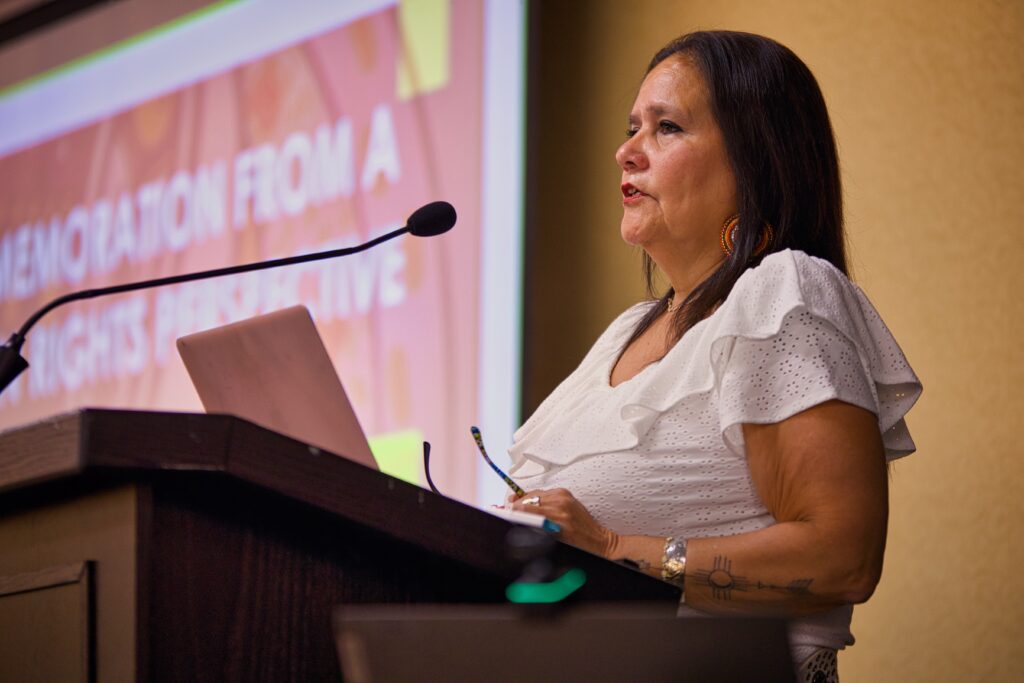
Mark Pritchard, former Chief Superintendent and Regional commander for the Northwest region of the OPP, spoke about the crucial role of survivor-led investigations into the abuses at the Mohawk Institute Indian Residential School. He highlighted the century and a half of human rights violations that occurred at the institution, noting that the official government documents he reviewed were deeply disturbing.
Pritchard emphasized the need to gather documents from a diverse range of sources, including institutions like the University of California, Princeton University, and the NYC Public Library, to uncover the full truth about the abuses. He acknowledged that his three years of work are just the beginning, and there are ongoing challenges such as the RCMP’s failure to send promised documents to the National Centre for Truth and Reconciliation (NCTR) and the lack of response to these issues.
Pritchard stressed the importance of securing custody of these records to prevent further destruction and ensure that all answers are provided. Without completing this work, he warned that the full extent of the abuses and the proper commemoration of the victims will remain unresolved.
In the final presentation of this gathering, the Nishnawbe Aski Nation (NAAN) expressed their concerns for the Northern Indigenous communities involved in this work and made a call for several crucial needs. Some of which included, the critical need for health and wellness support for Survivors and their communities, as this support is vital for addressing the ongoing impacts of trauma associated with the Indian Residential School system.
The presentation also underscored the importance of raising awareness and educating the public about the true history of Indian Residential Schools. This effort is aimed at confronting and overcoming denialism surrounding these institutions.
We were also joined by Barbara Ruotsalainen of the Bringing our Children Home Initiative, led by Lac Seul First Nation, representing 33 First Nation communities in developing protocols for healing, gathering, communication, searches/findings and repatriation of Survivors of Indian Residential schools operating in Treaty #3 territory.
They are the organizers of the change.org initiative calling for reversals of these unjust funding cuts made by Canada. Survivors’ Secretariat urges you to show your support and sign the petition now! Please visit: https://bitly.cx/9W2ar
Honouring Survivors
he Survivors’ Secretariat extends heartfelt gratitude to all the speakers, staff, Survivors, and intergenerational youth who contributed to this gathering. While this event has concluded, our journey for truth and justice continues. We must continue to advocate, as with time, we risk losing more Survivors who deserve answers within their lifetimes. As Laura Arndt, lead of the Survivors’ Secretariat, stated, “Patience, Perseverance, and Persistence will get us there.”
On September 30th, the Survivors’ Secretariat will hold a rally on Parliament Hill, calling on the Canadian Governmentt to provide long-term, sustainable funding to all organizations doing this vital work. We encourage you to stay informed and support our efforts by following updates on the Survivors’ Secretariat Facebook page.
Together, we will persist in honouring Survivors and the memory of those children who never returned home.
